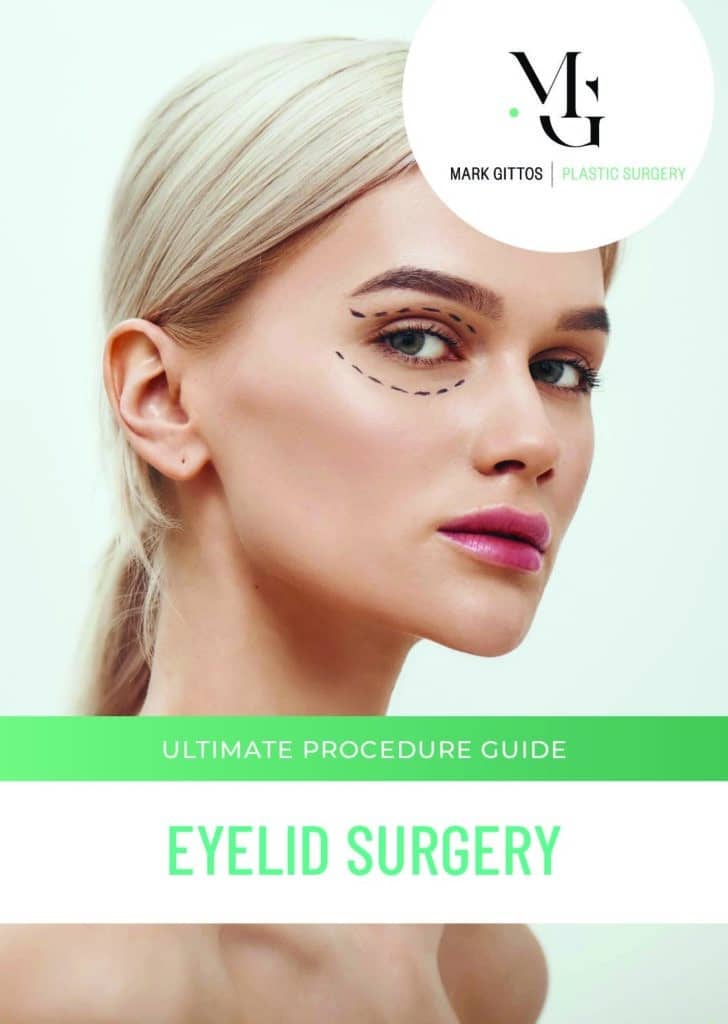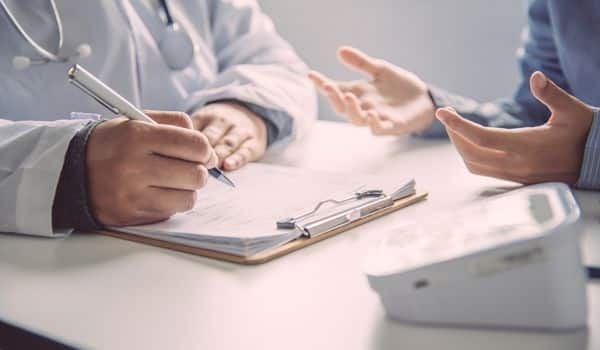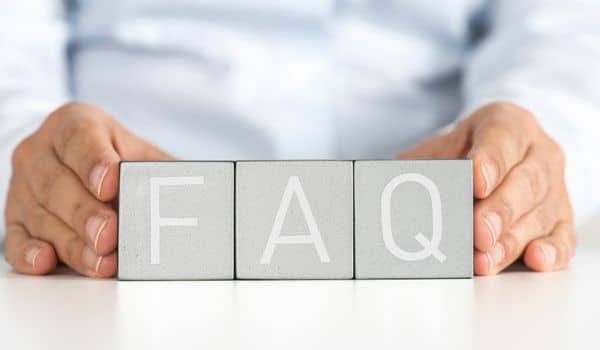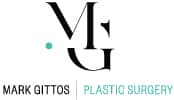Eyelid Lift Surgery Recovery Timeline
If you are considering a lower blepharoplasty to improve the shape of your eyelids and reduce the appearance of sagging skin, you may be wondering about the recovery process. Blepharoplasty, also called an “eyelid lift,” is a plastic surgery procedure that is performed to minimise under-eye bags, reduce under-eye wrinkling, and remove the puffy or sagging appearance caused by ageing.
Dr Mark Gittos is a specialist plastic surgeon in Auckland and London who performs both upper and lower blepharoplasty procedures to help his patients find a solution for these common cosmetic concerns. Dr Gittos can also perform blepharoplasty as a solution when sagging eyelid skin is causing difficulties with vision.
Download Dr Mark Gittos’ Guide to Eyelid Lift Surgery – Blepharoplasty

Recovery After Blepharoplasty
While the recovery journey after a blepharoplasty depends on a lot of factors – such as how old you are, the type of procedure you have had, and your medical history – there are some general trends that will help you know what to expect in the days after your procedure.
· Day 1 After Lower Blepharoplasty Surgery
Right after your eyelid surgery procedure, your face will likely feel slightly tender or appear to have some minor bruising. It is normal for the eye area to feel “tight” after surgery. If you have had a general anaesthetic, you will probably feel sleepy, confused, or have difficulty focusing or remembering some information during the first day after surgery. Many patients are able to return home on the day of their blepharoplasty if they have only had the procedure performed on the upper eyelids. However, patients who have had a lower lid blepharoplasty, or an upper and lower lid blepharoplasty, will usually stay in the hospital for one night so that their recovery can be monitored by medical staff. On the first day after your eyelid surgery, you will be able to get out of bed, go to the bathroom, or sit up in a chair. The medication that you need to take after surgery will depend on what your medical team recommends. For the first two days after having eyelid surgery, it is recommended to apply cool packs or ice packs to your eyelids. This helps with the feeling of tightness, as well as minimising the bruising and swelling that can appear post-op. Place the ice packs over your eyes for 20 minutes at a time, then give your eyelids a break from the cold for another 20 minutes.
· Days 2-3 After Lower Blepharoplasty Surgery
Many patients notice that their swelling and bruising are most noticeable at around 2 or 3 days following eyelid surgery. Dr Gittos will ensure that you have eye ointment or eye drops to minimise discomfort and improve the speed of your recovery. At this stage, you should avoid activities that cause eye strain, such as watching television, using a computer, or scrolling on your phone. Regular use of eye drops or ointment can cause sight blurring of the vision or a feeling of fatigue in the eyes, but this will settle as soon as eye medication is discontinued. If you have any questions about your vision, eye ointments, or other recommended medication post-op, Dr Gittos and his team are happy to provide guidance and keep you fully informed on your healing journey. You will be able to take a shower or have a bath if you need to, but you will need to make sure that your eyelid area is kept dry. While a small splash of water may not affect your recovery, it is important to make sure that your wounds are not soaked or kept wet for a long period of time. You can use bathing strategies such as:
- Taking a bath instead of a shower
- Waiting to wash your hair until 5-7 days after surgery
- Asking a family member or partner to wash your hair for you
- Adjusting the showerhead to chest-height
· Day 3-6 After Lower Blepharoplasty Surgery

· Week 2 After Your Lower Blepharoplasty Surgery
You might find that you are ready and able to go back to work during the second week after your procedure, especially if you have a job that is not strenuous. It might be worth taking a longer period of time off work if:
- You have a very physical job e.g., a lot of heavy lifting
- Your job requires you to be outdoors or day
- Your job involves extended periods of looking at screens, such as an office or admin job

· Weeks 3-6 After Your Lower Blepharoplasty Surgery
Some patients may feel fully recovered four weeks after surgery, but for others, it can take up to 6 weeks for the eyes to feel back to normal. During this period of time, any swelling and bruising that occurred post-op will continue to resolve. Usually, once 2-4 weeks have passed, other people will no longer be able to tell that you have had a recent surgical procedure unless you tell them.
· Week 6 Onwards Following Lower Blepharoplasty Surgery
After six weeks, you will be able to return to strenuous activity such as running, going to the gym, or lifting heavy weights if you feel well-rested and your swelling is minimal. There is no rush to return to these activities if you don’t feel ready, and there is nothing wrong with taking an extra week away from the gym if you need to. While you will likely feel almost back to normal after your 6th-week post-op, scar maturation can take much longer than the rest of your healing. Scar maturation is the process where the body “remodels” scar tissue over time. During scar maturation, the colour of the scar will fade, and it will usually appear flatter and smaller than it did in the early stages of healing. It can take one year or longer for scar maturation to finish.
FAQs about Lower Blepharoplasty Recovery

How can I ensure my recovery goes as smooth as possible?
While there is always a small risk that complications can occur during or after a plastic or cosmetic surgery procedure – even a minor procedure such as a blepharoplasty – there are many steps that you can take to help you recover from surgery. Ways that you can prepare for surgery and help your body recover include:
- Maintaining a healthy weight for six months prior to surgery
- Having a regular exercise regime as you prepare for surgery
- Eating a balanced diet
- Quitting smoking at least six weeks before your procedure
After surgery, you can help your body to recover by:
- Eating a healthy diet and avoiding junk food
- Avoiding drinking alcohol during your recovery period
- Sticking to a regular sleep schedule
- Going to all of your follow-up appointments with Dr Gittos
- Staying well-hydrated
If your body is well-nourished, well-rested, and you are at a healthy weight, it will be easier for your body to “bounce back” from any plastic surgery procedure.
Will the type of anaesthetic I have impact my recovery?
- When you have a blepharoplasty procedure, you have anaesthetic anaesthetic to improve your comfort during and after the procedure. Often, lower eyelid surgery will require a general anaesthetic. What type of anaesthetic you have will depend on what Dr Gittos recommends for your case, your medical history and preferences, and the specific eyelid surgery you are getting. Usually, it will take a little longer to feel “normal” after your procedure when you have had a general anaesthetic. This is because the side effects of this type of anaesthesia can cause you to feel groggy, have difficulty focusing, and feel confused for a day or so after your procedure. However, the length of your long-term recovery will be the same regardless of what type of anaesthesia you had.
Can I wear my contacts while recovering from a lower blepharoplasty?
- No, you should not wear contact lenses until your eyes have recovered from your surgical procedure. For many people, contact lenses should be avoided until three weeks after surgery. If you wear contact lenses, Dr Gittos will discuss this timeline with you during your consultation.
Will my blepharoplasty scars be visible?
- Immediately after surgery, your incisions will be visible due to bruising, swelling, and stitches. Most patients report that they are unable to see their lower blepharoplasty scars at all once healing is completed. When performing blepharoplasty surgery, Dr Gittos makes very small incisions that align with the natural positioning of the skin of the eyelids. This means that once the stitches have been removed, the scars appear very thin and difficult to see, creating a very natural appearance.
Further Reading about Eyelid Lift Surgery
- Read Dr Mark Gittos’ Male Eyelid Lift FAQs – Questions about Blepharoplasty for Men blog
- See Dr Mark Gittos’ Eyelid Lift Before and After Photos NZ
- Read Dr Mark Gittos’ Recovery after Blepharoplasty blog
- Read Dr Mark Gittos’ Five Biggest Mistakes Surgeons Make with Eyelid Lift Surgery blog
Medical References about Blepharoplasty Recovery
- What should I expect during my eyelid surgery recovery?
- All about blepharoplasty procedures and results
- Eyelid Surgery: Preparation, Recovery, Long-Term Care
About Dr Mark Gittos FRACS (Plast) – New Zealand Plastic Surgeon
Practice locations in Herne Bay Auckland, Northland and Bay of Plenty – Kerikeri, Whangarei, New Plymouth & Tauranga
Dr Mark Gittos is a leading Specialist Plastic Surgeon and operates a practice in Herne Bay, Auckland and in the UK. The practice focuses on both surgical and non-surgical procedures, each designed to help restore, improve or change a physical characteristic or problem. The first step in every case is to talk through your personal requirements and explore all the options, before deciding on the most effective solution. Dr Mark Gittos offers high quality, natural-looking cosmetic surgery results and is highly experienced in Breast, Body and Face Surgery having performed over 4000 Surgeries in the last 26 years. With worldwide expertise Dr Gittos is an expert in breast, face and body surgery for men & women. Naturally, before any treatment is begun, we will explain clearly the advantages and risk factors; so that you have the information you need to make an informed decision that is best for you. Visit the practice to find out more.
NEXT STEPS
Please NOTE: Dr Gittos only performs surgery on non-smoker patients with a BMI less than 30. To check your BMI please visit the NZ Heart Foundation website. For help giving up smoking before surgery visit the Smoke Free website Do your Research- Read the Website and Blogs relevant to your procedure
- Browse our Frequently Asked Questions including how to choose a Surgeon for your procedure
- Download and read the FREE Guides to Surgery
- Bring a friend or relative to help discuss the information and your choices
- Take lots of notes and read the documents provided thoroughly
- Dress in simple clothes as you may need to undress for examination
- Bring your medical referral and any relevant medical documents or test results
- A Referral from your GP or specialist is helpful but NOT essential – you can have a consultation without a GP Referral
- Email us or Call on 09 529 5352 to arrange your surgeon consultation appointment.
- Book a consultation with Dr Gittos by paying the Consultation Fee – $325 incl GST
